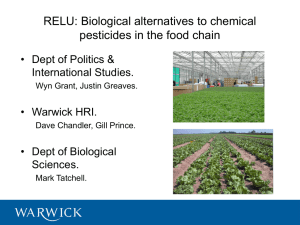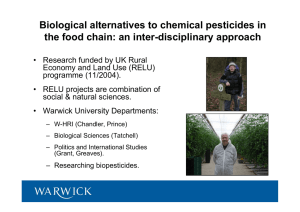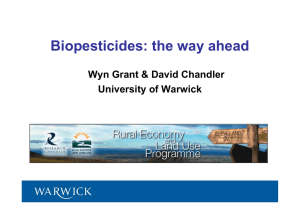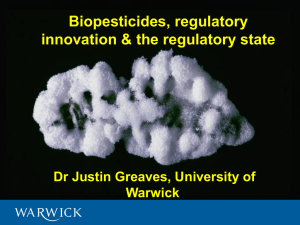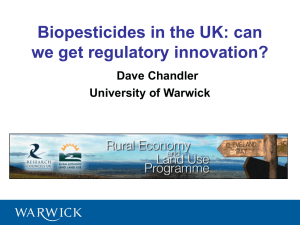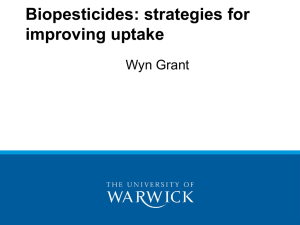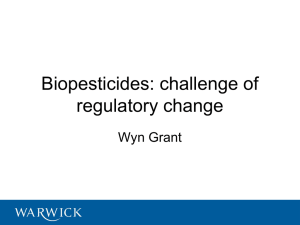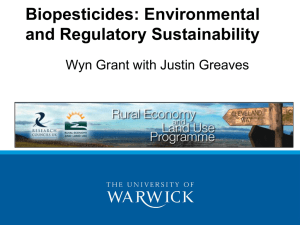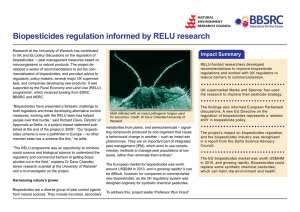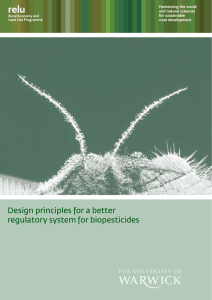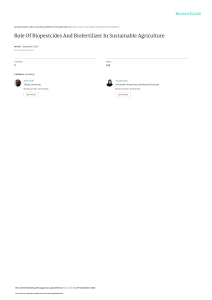RELU: Biological alternatives to chemical pesticides in the food chain International Studies.
advertisement
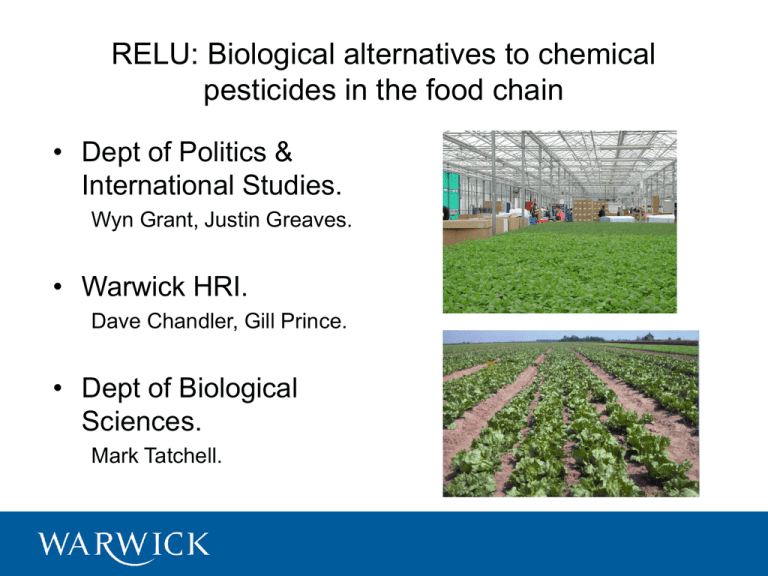
RELU: Biological alternatives to chemical pesticides in the food chain • Dept of Politics & International Studies. Wyn Grant, Justin Greaves. • Warwick HRI. Dave Chandler, Gill Prince. • Dept of Biological Sciences. Mark Tatchell. Biopesticides: regulatory sustainability. Why aren’t products reaching the market in the UK? Main aims: – Assess limitations of chemical pesticide regulatory system for biopesticides. – Identify processes that may sustain regulatory innovation. – Compare public policies on pesticide reduction. New a.i. registrations 16 14 12 conventional biological reduced risk conventional 10 8 6 4 2 0 Registration in the USA 1986 1988 1990 1992 1994 1996 1998 2000 2002 2004 2006 Biopesticides: environmental sustainability. Improving knowledge of the ecology of fungal biopesticides. Main aims: – Understand the effect of habitat type on biodiversity of natural populations of insect pathogenic fungi. – Fungal life history: how do insect pathogenic fungi survive in soils (saprotrophs or obligate pathogens?). – Impact of inundative releases on (a) indigenous fungal populations & (b) genotypes of the pest insect that feed on non crop plants. Chemical pesticides • Consumer and retailer resistance – although no real evidence of significant impacts on human and animal health in the food chain • Shift from politics of production to collective consumption • Concerns may deter fruit and vegetable consumption Problems for growers • New chemistry expensive to develop • As existing products are withdrawn, resistance problems increase • Consumer could face higher prices and/or lower quality Biopesticides • Micro-organisms that kill insects and mites • Naturally widespread, little or no toxic residue, safe to wildlife (but possible impact on beneficials) • Highly specific, so niche market Lack of success • Have been around commercially for 20+ years but very small share of market • One explanation is market failure hypothesis (Imperial at Wye based project) • Regulatory failure hypothesis – not an attack on regulators, but systemic problems of regulation/regulatory state Solutions • Reduce cost of registration process (data, not fee). Follow US route of not testing for efficacy? • Get mutual registration in EU to work? • Financial help for SMEs to bring products to market Other suggestions • Pesticides Tax – we will look at this in Denmark, but not helping biopesticides there. Voluntary Initiative should be given a chance • Organisational changes in agency structure Visit our website • http://www2.warwick.ac.uk/fac/soc/pais/ biopesticides/
